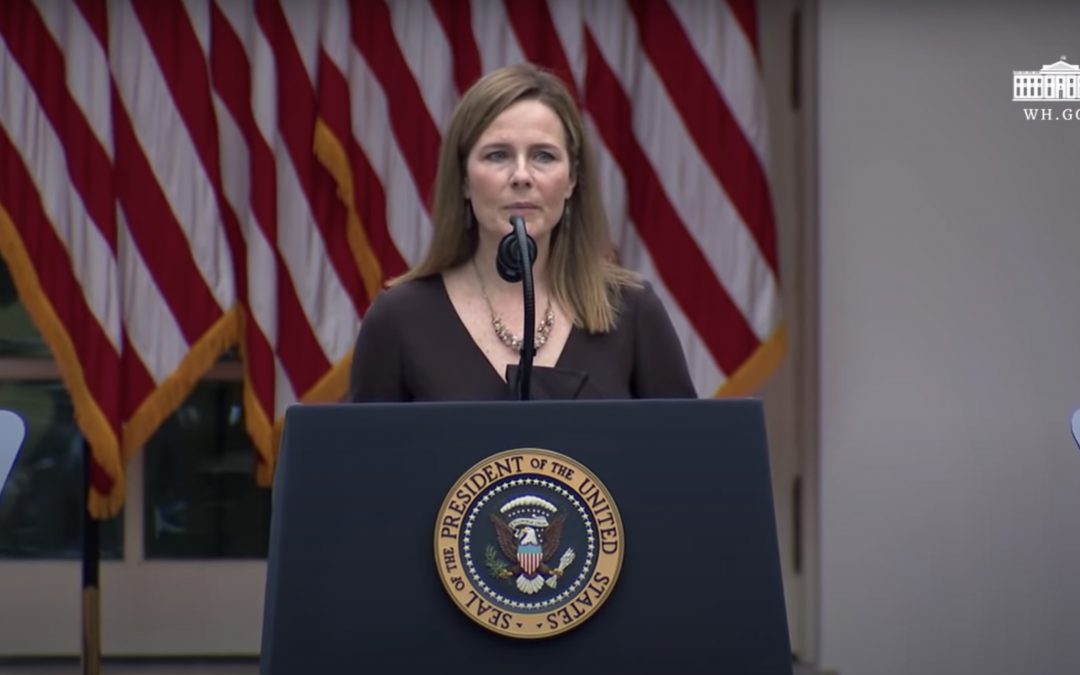WASHINGTON – In accepting President Donald Trump’s nomination Saturday for a seat on the Supreme Court, federal judge Amy Coney Barrett acknowledged the late Justice Antonin Scalia, for whom she clerked, solidifying the view that she is likely to emulate his view of originalism if confirmed by the Senate.
Speaking after Trump in the Rose Garden, she said, “A judge must apply the law as written. Judges are not policymakers, and they must be resolute in setting aside any policy views they might hold.”
She would fill the seat of the late Justice Ruth Bader Ginsburg, a leader in changing laws to provide equal rights for women.
Barrett, 48, is a graduate of Rhodes College, a small liberal arts college in Tennessee, and earned her J.D. from the University of Notre Dame. She is married and has seven children, two of whom are adopted.
After graduating from law school, she clerked for D.C Circuit Appeals Judge Laurence Silberman and, later, for Scalia. In 2002, she joined the faculty of the University of Notre Dame, where she taught until Trump appointed her to the 7th U.S. Circuit Court of Appeals in 2017. She was confirmed 55-43 by the Senate.
Professor Stephen Gilles at Quinnipiac Law School said that her confirmation would move the court slightly to the right.
“I’m not sure how big a shift it will be,” said Gilles. “But I agree with what I think is the consensus that having Judge Barrett on the court will move the court somewhat to the right – that is in the direction of Justice Clarence Thomas or the late Justice Scalia.”
While serving on the appeals court, she has been a conservative voice on issues such as gun control, healthcare and abortions as a judge. She has criticized Chief Justice John Roberts on his opinions of the Affordable Care Act in articles for Notre Dame, taken a historical approach to gun control in her dissent of Kanter v. Barr in saying felons should have access to guns and has favored restrictions on abortions in cases that came before the 7th Circuit court of Appeals.
Democrats worry that she could help overturn Roe v. Wade and the Affordable Care Act.
Gilles believes the validity of that concern depends on how persuasive she can be during Supreme Court oral arguments and private debates among the justices.
“If a justice is very persuasive, is personally collegial, and is on the court for a long time, the chances are good … and I think she qualifies on all three of those grounds,” said Gilles.

